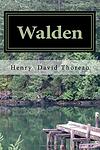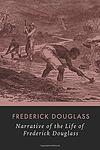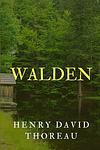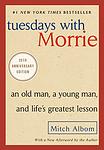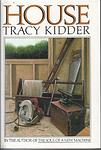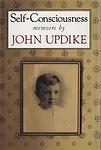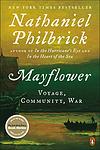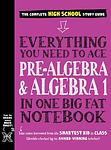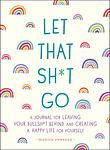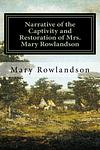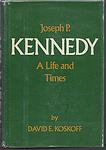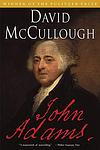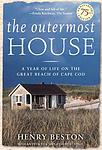The Greatest "Nonfiction, Massachusetts" Books of All Time
Click to learn how this list is calculated.
This list represents a comprehensive and trusted collection of the greatest books. Developed through a specialized algorithm, it brings together 300 'best of' book lists to form a definitive guide to the world's most acclaimed books. For those interested in how these books are chosen, additional details can be found on the rankings page.
Genres
The category of "Massachusetts" books refers to literature that is set in or about the state of Massachusetts. These books may explore the history, culture, and people of Massachusetts, as well as the unique landscapes and landmarks that define the state. From classic works of American literature to contemporary fiction and non-fiction, the Massachusetts category offers a diverse range of books that capture the essence of this iconic New England state. Whether you're a history buff, a lover of nature, or simply looking for a great story, the Massachusetts category has something for everyone.
Countries
Date Range
Reading Statistics
Click the button below to see how many of these books you've read!
Download
If you're interested in downloading this list as a CSV file for use in a spreadsheet application, you can easily do so by clicking the button below. Please note that to ensure a manageable file size and faster download, the CSV will include details for only the first 500 books.
Download-
1. Walden by Henry David Thoreau
This work is a reflection upon simple living in natural surroundings, inspired by the author's two-year experience of living in a cabin near a woodland pond. Filled with philosophical insights, observations on nature, and declarations of independence from societal expectations, the book is a critique of the complexities of modern civilization and a call to appreciate the beauty and simplicity of the natural world. It explores themes such as self-reliance, solitude, and the individual's relationship with nature.
-
2. The Autobiography of Malcolm X by Alex Haley
This book is an autobiography narrating the life of a renowned African-American activist. It delves into his transformation from a young man involved in criminal activities to becoming one of the most influential voices in the fight against racial inequality in America. The book provides a deep insight into his philosophies, his time in prison, conversion to Islam, his role in the Nation of Islam, his pilgrimage to Mecca, and his eventual split from the Nation. It also addresses his assassination, making it a powerful account of resilience, redemption, and personal growth.
-
3. Narrative of the Life of Frederick Douglass by Frederick Douglass
This autobiographical book provides a first-hand account of the life of a former slave, chronicling his experiences from his early years in bondage, his struggle to teach himself to read and write, his daring escape to freedom, and his subsequent rise as a prominent abolitionist. The narrative is a powerful exploration of the physical and psychological effects of slavery, making it a significant work in American history.
-
4. Civil Disobedience by Henry David Thoreau
The book is a seminal work on the philosophy of non-violent resistance, advocating for individual freedom and the refusal to obey unjust laws. The author argues that individuals have a duty to prioritize their conscience over the dictates of laws and that governments are inherently prone to corruption and should not command absolute allegiance from their citizens. The book has greatly influenced many nonviolent resistance movements around the world, including those led by Gandhi and Martin Luther King Jr.
-
5. Essays, First And Second Series by Ralph Waldo Emerson
This collection is a compilation of insightful and thought-provoking essays that delve into the nature of the human experience, exploring themes such as individuality, nature, society, and spirituality. The author, a central figure in the transcendentalist movement, encourages readers to break free from the constraints of conformity and to trust in their own intuition and inner moral compass. Through a blend of personal reflection and philosophical musings, the essays challenge the status quo and advocate for a life of self-reliance, intellectual independence, and a deep connection with the natural world. The work has had a lasting impact on American thought and literature, inspiring readers to seek a more authentic and fulfilling existence.
-
6. Essays of Henry David Thoreau by Henry David Thoreau
This collection of essays presents the profound reflections of a renowned philosopher and naturalist on a variety of subjects, including nature, self-reliance, civil disobedience, and transcendentalism. The author's eloquent prose and deep insights into human existence and the natural world continue to inspire readers, offering a timeless perspective on living a meaningful, deliberate life. His views on individualism and nonconformist thought have had a significant impact on both personal and political spheres.
-
7. The Character Of Physical Law by Richard P. Feynman
"The Character of Physical Law" is a collection of lectures that explores the nature of the laws of physics. The book delves into the principles that govern the physical universe, discussing topics such as the relationship between mathematics and physics, the role of symmetry in physical laws, and the conservation principles that underpin the laws of nature. Through engaging and accessible language, the author provides insights into how physicists think about problems and develop theories, emphasizing the beauty and simplicity inherent in nature's laws. The work also reflects on the philosophical implications of scientific discoveries and the interconnectedness of various physical phenomena.
-
8. The Perfect Storm by Sebastian Junger
This non-fiction book narrates the story of the Andrea Gail, a commercial fishing vessel that was lost at sea during the "Perfect Storm" of 1991. The author combines meteorological science, history, and personal accounts to paint a vivid picture of the harrowing ordeal faced by these six fishermen. The book also explores the dangerous profession of deep-sea fishing and the tight-knit communities that are affected by such tragedies.
-
9. In the Heart of the Sea by Nathaniel Philbrick
This historical narrative tells the true story of the 19th-century whaleship Essex, which was rammed and sunk by a sperm whale in the South Pacific. Stranded thousands of miles from land, the crew of the Essex was pushed to their limits and forced to do the unthinkable to stay alive. The tale explores the harrowing ordeal of these men through their long journey at sea, their encounters with nature's fury, hunger, disease, and their own fear and despair.
-
10. The Adams Jefferson Letters by Lester J. Cappon
This book is a comprehensive collection of the correspondence between two of America's founding fathers over the course of their long and storied lives. Through their letters, readers gain an intimate glimpse into the deep friendship, occasional rivalry, and mutual respect that existed between these two men, both of whom played pivotal roles in the formation of the United States. The correspondence covers a wide range of topics, including politics, philosophy, and personal matters, offering invaluable insights into the early years of American independence, the challenges of governance, and the intellectual landscape of the 18th century. This collection not only sheds light on the personal dynamics between these influential figures but also provides a rich historical context for understanding the foundational principles of the American republic.
-
11. Tuesdays With Morrie by Mitch Albom
The book is a poignant memoir that recounts the series of visits the author makes to his former sociology professor, who is dying from amyotrophic lateral sclerosis (ALS). Through weekly meetings every Tuesday, the professor imparts wisdom on various aspects of life such as love, work, community, family, aging, and death. These conversations, rich with emotional depth and life lessons, transform into a final "class" on the meaning of life, where the professor's insights and experiences serve not only as a guide for the author but also offer profound lessons for the readers about the importance of human connection, compassion, and living a life filled with purpose.
-
12. Common Ground by J. Anthony Lukas
"Common Ground" is a non-fiction book that provides an in-depth examination of racial tensions in Boston, Massachusetts during the 1960s and 1970s, primarily focusing on the controversial issue of court-ordered busing to integrate public schools. The narrative follows three families - one African-American, one Irish-American, and one Yankee - to depict the effects of these tensions on the city's different communities. The book also explores the historical, political, and social context of these events, offering a comprehensive analysis of a critical period in American history.
-
13. House by Tracy Kidder
"House" is an in-depth exploration of the process of building a home from the ground up. The book follows the journey of a young couple as they work with an architect and a team of builders to construct their dream house. The narrative delves into the intricate details of construction, the complexities of the interpersonal relationships involved, and the emotional rollercoaster that comes with creating a home. It's a unique perspective on the American dream of homeownership.
-
14. The Boston Cooking School Cook Book by Fannie Farmer
This iconic culinary reference, first published in the late 19th century, revolutionized American cooking by introducing standardized measurements and a systematic approach to kitchen procedures. It serves as a comprehensive guide to American cuisine, offering a wide array of recipes ranging from simple home fare to more elaborate dishes, along with detailed instructions on techniques, kitchen equipment, and ingredient selection. The book's emphasis on precision and clarity in recipe formulation made it an invaluable resource for both the novice and experienced cook, securing its place as a staple in American kitchens and influencing the way cooking is taught for generations.
-
15. A Curious Hieroglyphic Bible by Isaiah Thomas
This early 19th-century publication is a unique take on the traditional Bible, aimed at engaging children with Scripture through the use of hieroglyphics, or small pictures, that represent words or phrases. Each passage of biblical text is accompanied by these illustrative symbols, intended to help young readers better understand and remember the stories and moral lessons of the Bible. It serves both as an educational tool and a novel approach to religious instruction, reflecting the pedagogical and religious values of its time.
-
16. The Great Speeches And Orations Of Daniel Webster by Daniel Webster
This book is a comprehensive collection of the most significant speeches and orations delivered by Daniel Webster, a prominent American statesman and orator of the 19th century. It includes his eloquent legal arguments, Senate speeches, and public addresses that cover a range of topics, from the powers of the federal government to issues of liberty and national unity. Webster's profound impact on American rhetoric and his ability to influence public opinion through his articulate and powerful speaking are showcased in this compilation, providing readers with insight into both his political philosophy and his masterful oratory skills.
-
17. Self-Consciousness by John Updike
"Self-Consciousness" is a memoir that delves into the personal life of a renowned author, exploring his childhood, his relationship with his parents, his struggles with psoriasis and stuttering, as well as his religious beliefs and views on death. The author's reflections on his life are deeply personal, introspective, and filled with a sense of vulnerability, providing an intimate look into his experiences and thought processes. The book offers an insightful exploration of the author's self-consciousness and how it has shaped his life and work.
-
18. Mayflower: A Story Of Courage, Community, And War by Nathaniel Philbrick
"Mayflower" by Nathaniel Philbrick is a historical account of the Pilgrims' journey to America on the Mayflower and their struggle to establish a colony in the New World. The book delves into the challenges they faced, including harsh weather, disease, and conflicts with the Native Americans. It also explores the relationships between the Pilgrims and the Wampanoag tribe, including the alliance formed between them and the events that led up to King Philip's War. Through detailed research and vivid storytelling, Philbrick provides a compelling and informative narrative of this pivotal period in American history.
-
19. Notebooks by Nathaniel Hawthorne
The book in question is a collection of personal reflections, observations, and insights penned by a prominent American author during his time in Europe and at home. These intimate writings provide a glimpse into the author's private thoughts and experiences, ranging from his daily life to his musings on the human condition and the nature of creativity. The entries are varied in content and form, including diary entries, sketches, and ideas for future stories, offering readers a unique window into the mind of one of the 19th century's literary figures.
-
20. Journals by Ralph Waldo Emerson
The book is a collection of personal reflections, observations, and philosophical musings penned over several decades by a prominent American thinker. It offers an intimate look into the author's intellectual journey, ethical convictions, and the development of his ideas on individuality, nature, and transcendence. The entries range from everyday occurrences to profound insights on human nature and society, providing readers with a deep understanding of the author's influence on American literature and transcendentalist thought. Through these pages, the author's voice emerges as a guiding force in the exploration of self-reliance and the pursuit of truth.
-
21. Malcolm X: A Life of Reinvention by Manning Marable
This biography provides an in-depth exploration of Malcolm X's life, from his early days of crime and imprisonment to his transformation into one of the most influential African-American leaders. It delves into his complex relationships, his evolving political beliefs, and his controversial views on race and religion. The book also examines his assassination, shedding new light on the circumstances around his death and the conspiracy theories that followed.
-
22. Narrative Of The Captivity And Restoration Of Mrs. Mary Rowlandson by Mary White Rowlandson
This book is a firsthand account written by a colonial American woman who was captured by Native Americans during King Philip's War in 1675. The narrative details her experiences over the eleven weeks of her captivity, describing the hardships she faced, her observations of Native American life, her struggles with her captors, and her reflections on her faith. Throughout her ordeal, she relies on her religious beliefs to find meaning and solace, ultimately being ransomed back to her English community. The work is one of the earliest and most famous captivity narratives, and it offers a complex and sometimes conflicting perspective on the relationship between early American settlers and Native Americans.
-
23. The Patriarch: The Remarkable Life And Turbulent Times Of Joseph P. Kennedy by David E. Koskoff
"The Patriarch" is a biography of Joseph P. Kennedy, the patriarch of the Kennedy family. The book covers Kennedy's life from his early days as a successful businessman to his political career, which included serving as the United States Ambassador to the United Kingdom during World War II. The author also delves into Kennedy's personal life, including his marriage to Rose Fitzgerald Kennedy and his relationships with his children, including President John F. Kennedy and Senator Robert F. Kennedy. The book explores Kennedy's successes and failures, as well as his controversial views on topics such as religion and race.
-
24. John Adams by David McCullough
This biography delves into the life of John Adams, the second president of the United States. The book tells the story of Adams' journey from his childhood in Massachusetts, his education at Harvard, his marriage to Abigail, his role in the Continental Congress, his diplomatic duties in Europe, his presidency, and his retirement. It also explores his complex relationships with contemporaries like George Washington and Thomas Jefferson. The author uses correspondence and diaries to provide an in-depth look at Adams' personal and political life, highlighting his integrity, patriotism, and political foresight.
-
25. The Outermost House by Henry Beston
"The Outermost House" is a captivating narrative that chronicles a year spent living on the outer beach of Cape Cod. The author offers a profound, meditative reflection on the natural world and the interplay between humanity and nature. Through detailed observations of the changing seasons, wildlife, and the ocean, the book explores themes of solitude, the rhythm of the natural world, and the deep, intrinsic connections humans share with the environment. The author's lyrical prose captures the beauty and the harshness of the coastal landscape, making it a timeless reflection on the importance of preserving natural spaces.
Reading Statistics
Click the button below to see how many of these books you've read!
Download
If you're interested in downloading this list as a CSV file for use in a spreadsheet application, you can easily do so by clicking the button below. Please note that to ensure a manageable file size and faster download, the CSV will include details for only the first 500 books.
Download